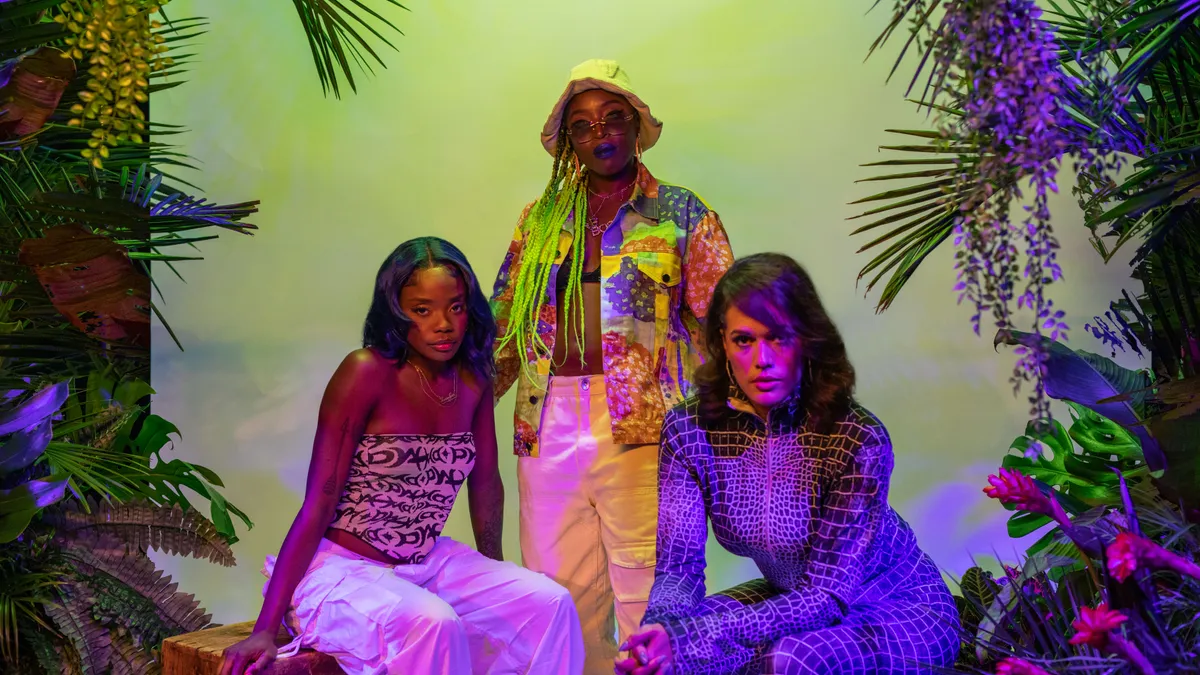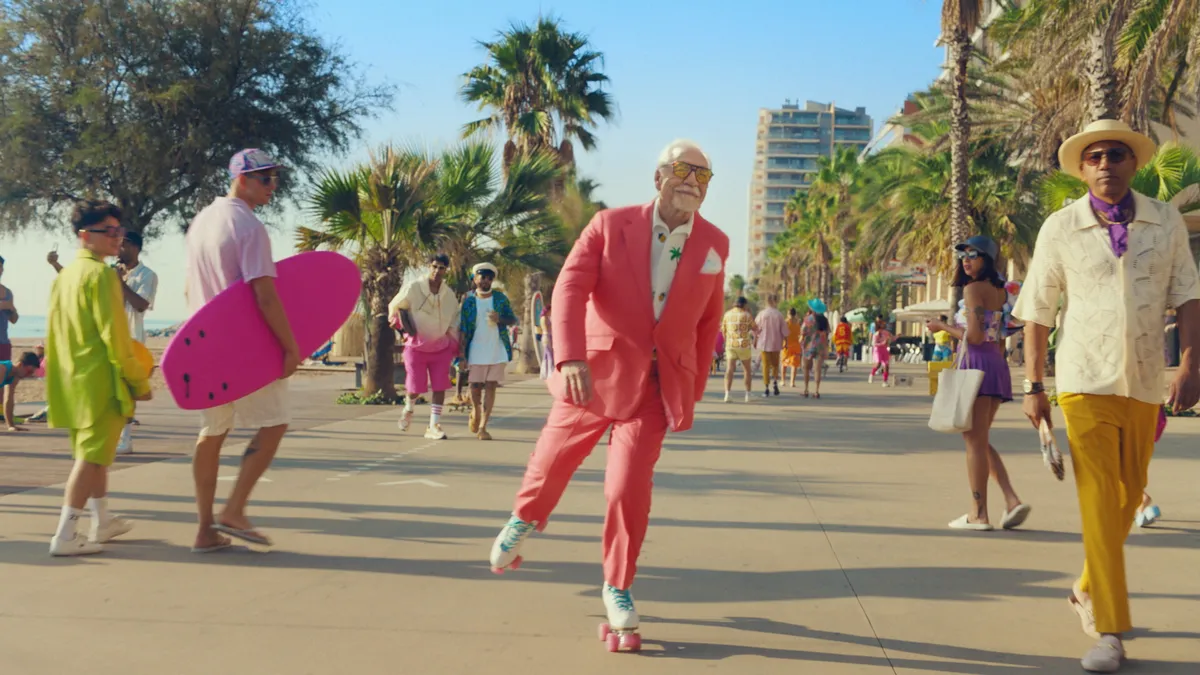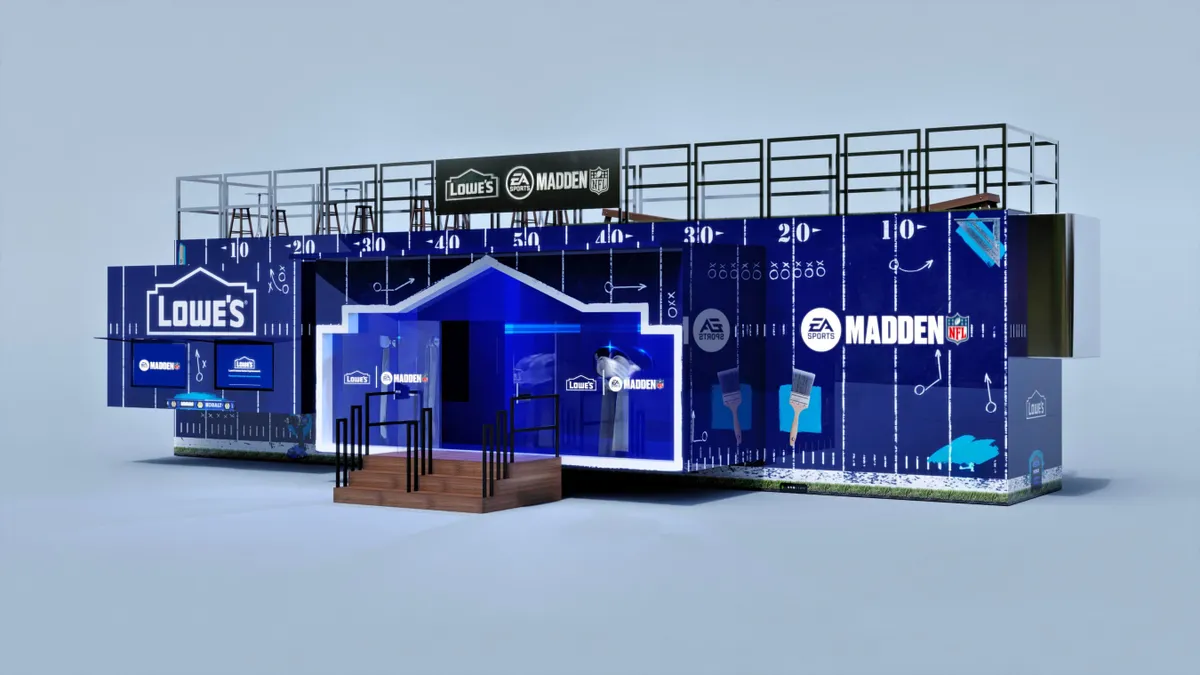As NFTs mature as a marketing strategy, Bacardi is taking its approach to the next level by pairing purpose with blockchain technology and empowering people to invest in women in music production.
Bacardi today (Oct. 13) unveiled a nonfungible token (NFT) auction as the central component behind the latest iteration of Music Liberates Music, a program the rum brand launched in 2017 to help aspiring musical artists through professional exposure. For this year's effort, which specifically aims to shine a light on the underrepresentation of women in music production, Bacardi and Caribbean producer Boi-1da selected three female musicians — Bambii, Denise De'ion and Perfxn — to create their own Caribbean-inspired tracks, which were then minted into NFT "mixtapes" that will be auctioned off through the program.
The collectibles will be sold on upstart NFT marketplace Sturdy Exchange, which launched to the public just last week.
"[Sturdy Exchange] is a platform created by creatives for creatives, so it's amazing for us because it really fits the brand's DNA and vision," said Laila Mignoni, Bacardi's global head of brand marketing communications.
Sturdy Exchange, developed by creative studio Sturdy, seeks to differentiate itself from competitors by centering artists throughout the NFT process, from crafting to curating to ultimately selling their specialized collectibles. As blockchain technology increasingly moves into the mainstream, such types of artistic protection have become less and less common.
While marketing around causes is nothing new to Bacardi, Music Liberates Music sees the rum brand evolving its digital strategy through purpose-driven NFTs. In effect, the collectibles serve as commodified vehicles for the brand's message, which Bacardi can promote and auction.
Moreover, the particular NFTs on Sturdy Exchange could maximize Bacardi's engagement with consumers. Each collectible will include a percentage of the streaming royalties of its respective mixtape, allowing buyers — or "fanvestors," per the announcement — to earn money the more their song is streamed.
Despite the influx of recent blockchain activations, the technology still presents a range of risks for interested brands, leaving many unsure as to how or even whether NFTs will fit into their marketing strategies long term. For Bacardi, that fit depends not so much on the technology itself, but rather how it is extending the brand's purpose into the digital world.
"An NFT for the sake of an NFT doesn't really speak to us," Mignoni said. "It has to be purposeful, it has to give back to the community."
Evolving digital strategy
Two months prior to Music Liberates Music, Bacardi launched its first NFT— a tie-up with celebrity photographer Cam Kirk to promote the brand's cask finish rum. The collectible — a digitally rendered copy of the product featuring interactive motion graphics — was auctioned off on a microsite and its proceeds were given to Bacardi's "Back the B.A.R." initiative that it co-sponsors with the NAACP to help Black-owned businesses acquire liquor licenses.
As with Music Liberates Music, this inaugural NFT activation sought to use Bacardi as a platform for the community, Mignoni said. The collectible itself commodifies positive action, which the brand was able to then promote as an ownable product in the digital world.
The auction is a method used by many brands to sell off their NFTs attached to a greater purpose, and while the collectibles tend to vary little in their features and functions, marketers usually stand to benefit simply by bringing the consumer closer to the brand experience, thus driving affinity for the brand and its cause in a way that is less accessible through non-digital means.
Bacardi's latest campaign takes this engagement one step further by allowing buyers to have an ongoing financial investment in their NFTs. As streams go up, so do the royalties that consumers can earn, which could establish a deeper connection among consumer, artist and brand.
"From a consumer perspective, they're kind of like part of the story … You're empowering fans to actually stream, buy and invest in what they love," Mignoni said.
Providing transparency and accessibility is key to achieving digital scale, per Mignoni. On Sturdy Exchange, for instance, consumers don't need the cryptocurrency Ethereum to bid on collectibles — a feature that could drive home Bacardi's purpose-driven message while expanding the campaign's reach to potential buyers.
As new blockchain advancements continue to shake out in the advertising world, Bacardi hopes to continue evolving its digital strategy toward getting consumers to spend more time with its marketing activities by including them more deeply in its efforts.
"The talking ad is good, but bringing people in [to the experience] is a whole different ball game," Mignoni said.























